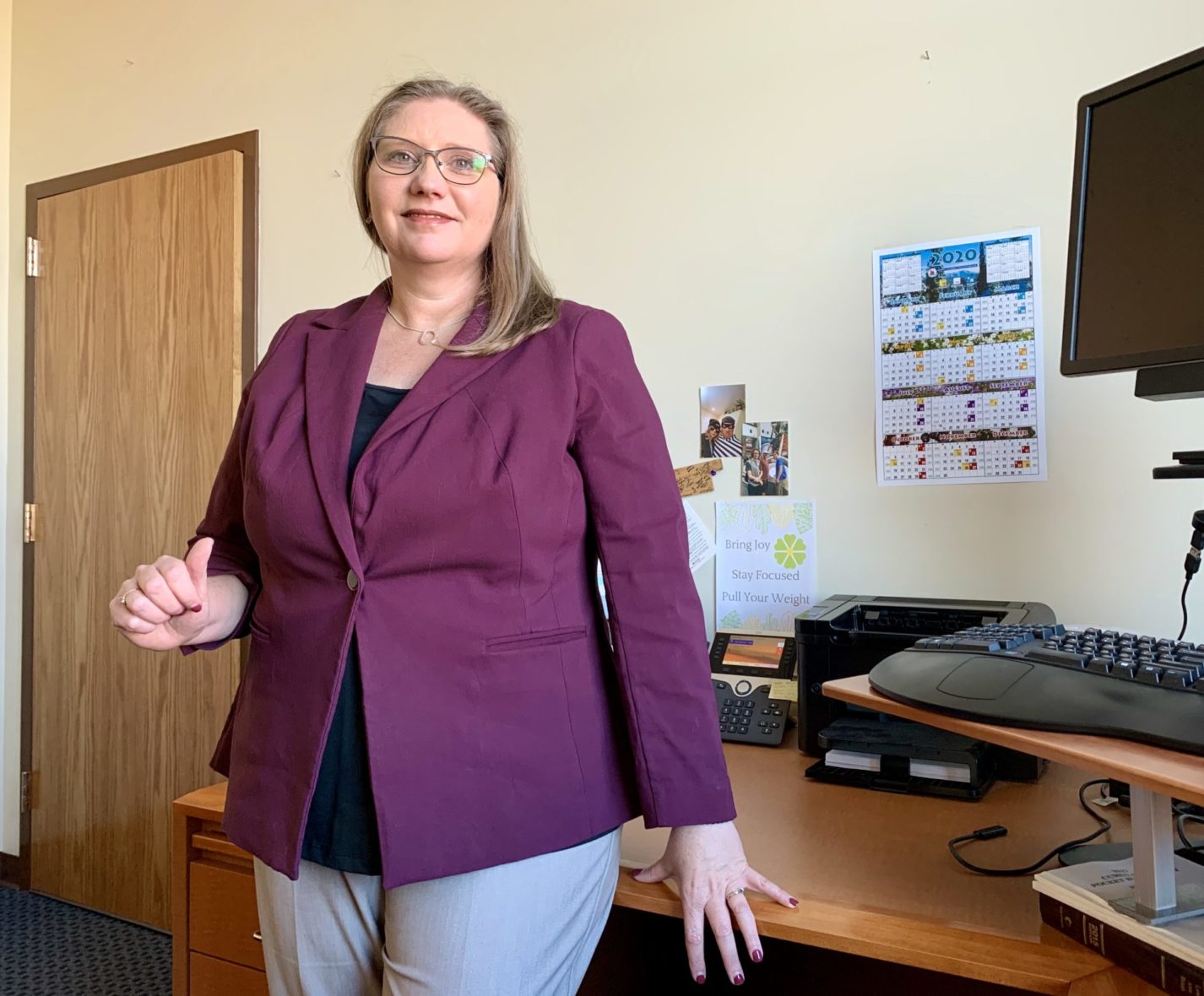
Communication is key to helping the Idaho Public Charter School Commission mend fences after months of controversy, according to Jenn Thompson, the commission’s new director.
Better communication with educators. Better communication between the commissioners. Better communication with staff.
“There’s very little we can’t resolve if we are talking and listening to each other,” said Thompson, who recently replaced Tamara Baysinger amid tension between the commission and some schools it oversees.
Some changes are already underway, Thompson stressed, but implementation can be a balancing act between working with schools and maintaining high standards for Idaho’s fast-growing public charter sector.
Turmoil amid turnover
Thompson’s promotion comes at a tense time for a commission that works under the State Board of Education to oversee nearly three-fourths of Idaho’s 68 public charter schools.
Last summer, leaked audio from a closed-door commission meeting captured candid complaints from commissioners and staff about several low-performing charters. Discussion revolved around financial “malpractice,” leadership issues in Blackfoot and Jerome and the prospect of shutting some schools down.
The fallout was swift. One administrator named in the recording filed a defamation claim against the commission. Some charter advocates lobbied lawmakers to rein in commission staffers, whom commissioners lean on for data and information about schools. Attorney General Lawrence Wasden’s office said the meeting likely violated Idaho’s open meeting law.
Baysinger left the commission in December without publicly saying why.
‘Schools feel they’re not getting through to the commission’
The recent faux pas is still fresh for Thompson, who worked for three years as the commission’s finance and program manager before replacing Baysinger.
Yet Thompson views last summer’s aftermath as the byproduct of a deeper issue.
“Schools feel they’re not getting through to the commission,” she told EdNews, adding that more is being done to build and strengthen communication channels.
She pointed to increased emphasis on connecting commissioners directly with charter schools across the state, including those struggling academically.
The commission’s new renewal committee, comprised of three commissioners, last week rounded out a series of meetings aimed at gathering feedback on recommendations from Thompson’s team to revamp the framework commissioners use to renew — or not renew — charters.
Current recommendations would ease up and streamline school-performance expectations by comparing learning outcomes at charters to those of schools similar in size and demographics, emphasizing learning growth over proficiency and aligning data-reporting requirements with those now placed on traditional schools.
The commission compares a charter’s performance to the entire district in which it operates. Educators at some low-performing charters have previously called for changes to the framework. Recommendations would need the commission’s approval later this year.
Still, direct communication with educators is helping mend relationships between some schools and the commission — and putting commissioners and staff on the same page regarding unique struggles individual charters face, said Thompson.
A balancing act
Reworking the performance framework is also a balancing act, Thompson acknowledged.
While some advocates endorse loosening up on renewal standards, others view high expectations as vital to justifying charters, which, under state law, enjoy more operational freedom than traditional schools.
“Idaho’s charter school program is one of the better performing in the nation,” said Terry Ryan, CEO of statewide charter support group Bluum. “(That’s) because the (commission) has worked to hold the schools it authorizes accountable for their performance.”
The trick for Thompson: maintaining standards while making performance expectations more realistic for struggling schools.
For her, current recommendations check both boxes.
“I don’t see (the recommendations) as lowering expectations,” said Thompson, adding that, if adopted, the revamped framework would still require charters to perform “as well or better than” the schools they’re compared to.
Ryan agrees.
“We support the approach Jenn is taking,” he told EdNews.
Thompson stressed another point regarding accountability under the proposed framework: “A charter can close, and one that’s not performing well should close.”
Since its inception in 2005, the commission has closed only one Idaho charter school. The commission’s approval rate is nearly 100 percent over the last two years, according to the National Association of Charter School Authorizers. The national average is 35 percent.
More about Thompson
Thompson joined the commission in 2017. She holds a master of arts degree in literary studies and a master of education degree in education administration. She’s also an Idaho-certified pre-K-12 administrator and secondary teacher.
She spends “lots of time” watching her 18-year-old son perform in Boise State University’s jazz band. She also enjoys gardening and kayaking.
Thompson spent 10 years working as a teacher and principal in Utah charters before moving to Idaho. She credits time in the classroom for shaping her passion for charter governance.
“I want to help schools have a stronger foundation,” she said. “That’s really why I’m here.”
Disclosure: Bluum and Idaho Education News are funded through grants from the J.A. and Kathryn Albertson Family Foundation.
